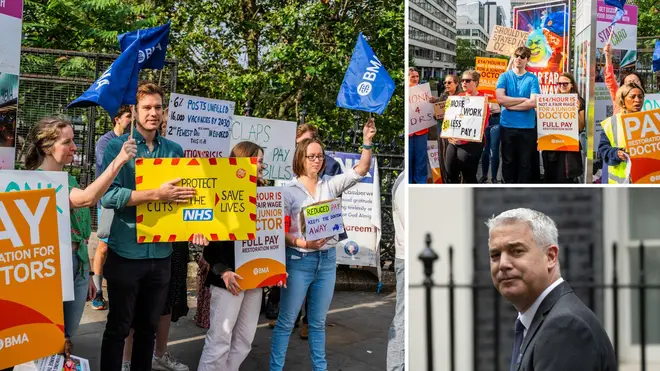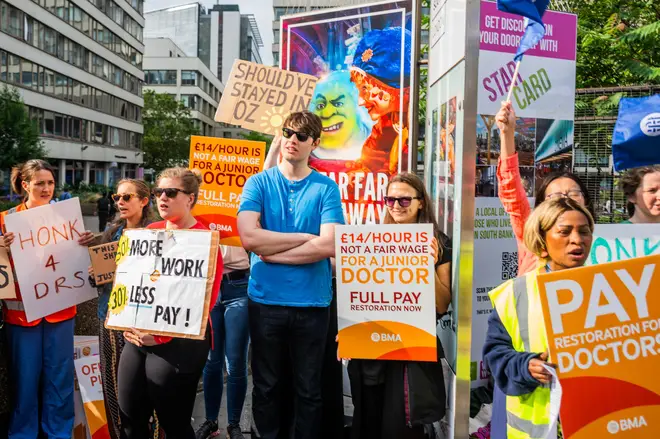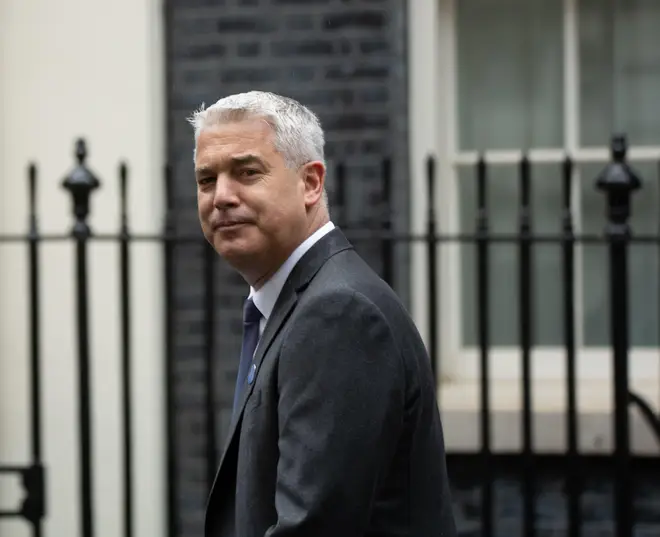
Clive Bull 1am - 4am
13 July 2023, 09:36 | Updated: 13 July 2023, 09:41

Junior doctors have begun the longest walkout in NHS history as the government weighs up a 6% pay rise for public sector workers.
Members of the British Medical Association are going on strike today as hospitals are forced to prioritise emergency and urgent care and scrap thousands of appointments.
Staffing means hospitals are left giving Christmas Day-style levels of help, while the NHS fears the action will cost £25m a day.
Doctors started the industrial action at 7am on Thursday and it will last until the same time on Tuesday.
Health secretary Steve Barclay has said calls for a 35% pay rise are a non-starter.
The BMA said in a statement: "We have to get back to talks. The Government's refusal to talk with junior doctors in England who have strikes planned is out of keeping with all norms of industrial action.
"We can call this strike off today if the UK government will simply follow the example of the government in Scotland and drop their nonsensical precondition of not talking whilst strikes are announced and produce an offer which is credible to the doctors they are speaking with."

Rishi Sunak is believed to be set to meet with Chancellor Jeremy Hunt to decide on whether public sector workers should get a 6% pay rise.
The BMA has already dismissed a 5% pay offer.
Junior doctors complain that pay rises over the last 15 years have been below inflation and a 35% increase is needed to keep up with prices.
Read more: Royal Mail strike action ends as postal workers vote overwhelmingly to accept pay deal

Nick Ferrari challenges Junior Doctor on strike advice from BMA
The BMA also wants the government to agree wages will not be reduced against inflation and the cost of living.
Junior doctor Arjan Sing, 27, who was the picket line at University College Hospital in London, said: "The government says it fears offering big wage increases at a time of soaring inflation would only make things worse."
Rebecca Lissman, who was on the same picket line, compared operations being cancelled to flights getting scrapped when aviation industry workers walk out.

"If something went wrong these patients are my responsibility. We want to deliver care that we're proud of and what we would want our family to receive but that's not possible at the moment," she said.
"I look at my rota and there's gaps where they need people to fill shifts; these shifts are getting advertised in WhatsApp groups."
Mr Barclay said: "If the BMA shows willingness to move significantly from their current pay demands and cancels these damaging and disruptive strikes, we can get around the table to find a fair deal to resolve this dispute."
The deputy chief executive of NHS Providers, which represents the health service's trusts, said the organisation understood "the strength of feeling" but warned that eight months of strikes had forces more than 651,000 procedures and appointments to be rescheduled.
"The disruption for many thousands of patients and the potential harm of delaying their treatment is a huge and growing risk for the NHS to manage," Saffron Cordery said.
"Trusts will hardly have time to draw breath after a five-day walkout by junior doctors before consultants strike for two days, followed by a two-day strike by radiographers."
The health service's assessment said: "It is estimated that the cost of providing staff cover for each junior doctor strike day to the NHS could be in the region of £25 million per day.
"This means some of the money provided to trusts as part of the Elective Recovery Fund to pay for elective treatment is having to be made available to spend on the effects of strike action instead."